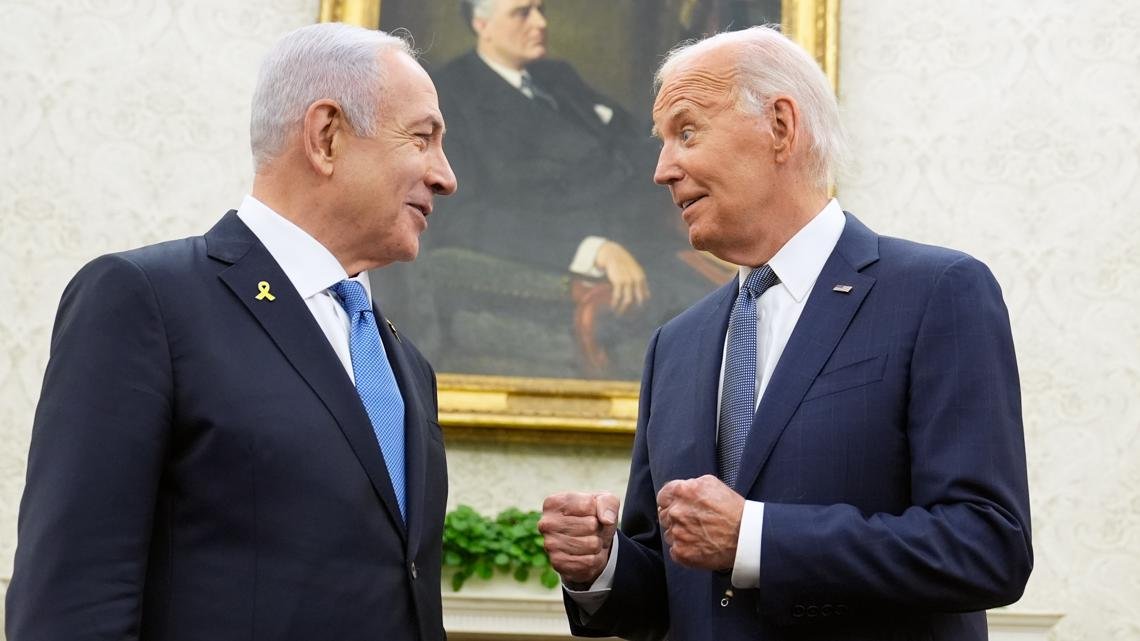cct-tracking
Biden and Netanyahu Engage in High-Stakes Talks for Israel-Hamas Ceasefire

Amid ongoing conflict, U.S. officials are optimistic about reaching a ceasefire and hostage release deal in the Israel-Hamas war. Israeli Prime Minister Benjamin Netanyahu and U.S. President Joe Biden engaged in discussions on Sunday, reflecting the urgency to finalize an agreement before the upcoming inauguration of Donald Trump.
The negotiations, facilitated by the United States, Egypt, and Qatar, have faced numerous hurdles despite moments of potential breakthroughs. Recent communications from U.S. officials indicate a renewed expectancy of sealing a deal soon.
During their conversation, Biden and Netanyahu addressed the evolving situation, coinciding with the presence of top Israeli and U.S. officials in Doha. David Barnea, head of Israel’s Mossad, and Brett McGurk, Biden’s senior Middle East adviser, are both integral to this high-level dialogue.
While McGurk is refining the final elements of a proposal, National Security Adviser Jake Sullivan noted the challenges ahead, stating, “We are very, very close, yet being very close still means we’re far.” He emphasized the need for tangible progress before any optimism can be justified.
Official confirmations from both the White House and Netanyahu’s office about the recent call did not elaborate on the contents of their discussions. A single brief ceasefire has marked these 15 months of conflict, following Hamas’s dramatic attack on October 7, which resulted in significant casualties and the taking of hostages.
The proposed deal currently under consideration involves a phased ceasefire. Netanyahu appears inclined toward a partial hostage release in exchange for an extended truce, although Hamas demands a complete withdrawal of Israeli troops from Gaza.
Critical elements still unresolved include the selection of hostages to be released, the fate of Palestinian prisoners, and the specifics of Israeli troop movements within Gaza. Rising tensions underscore the complexity of these negotiations.
Recent reports indicate that Israeli operations in Gaza have resulted in over 46,000 Palestinian fatalities, a figure that includes many women and children. The humanitarian impact of the conflict has led to the displacement of over 80% of Gaza’s population, comprising about 2.3 million people.
Families of the nearly 100 remaining hostages in Gaza are pressuring the Israeli government for swift action. Meanwhile, demonstrations in Tel Aviv have displayed the pictures of these hostages, reflecting community anguish and determination.
In Gaza, the mood among residents remains one of skepticism regarding the possibility of a ceasefire. As one Khan Younis resident noted, any hope hangs on verifiable actions rather than mere announcements about ongoing negotiations.
Reporting from Nahariya, Israel, concludes the update on the war’s current state and the diplomatic efforts aimed at alleviating the suffering on both sides.


















